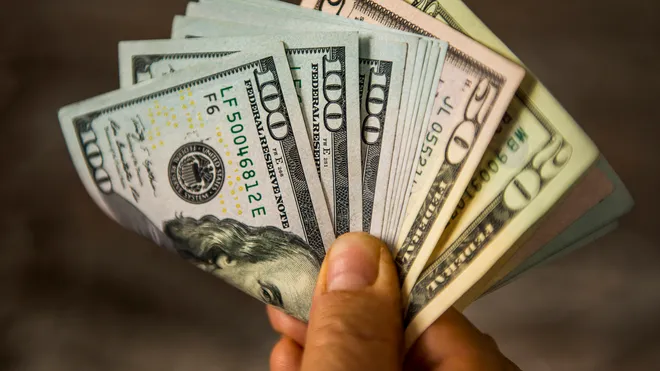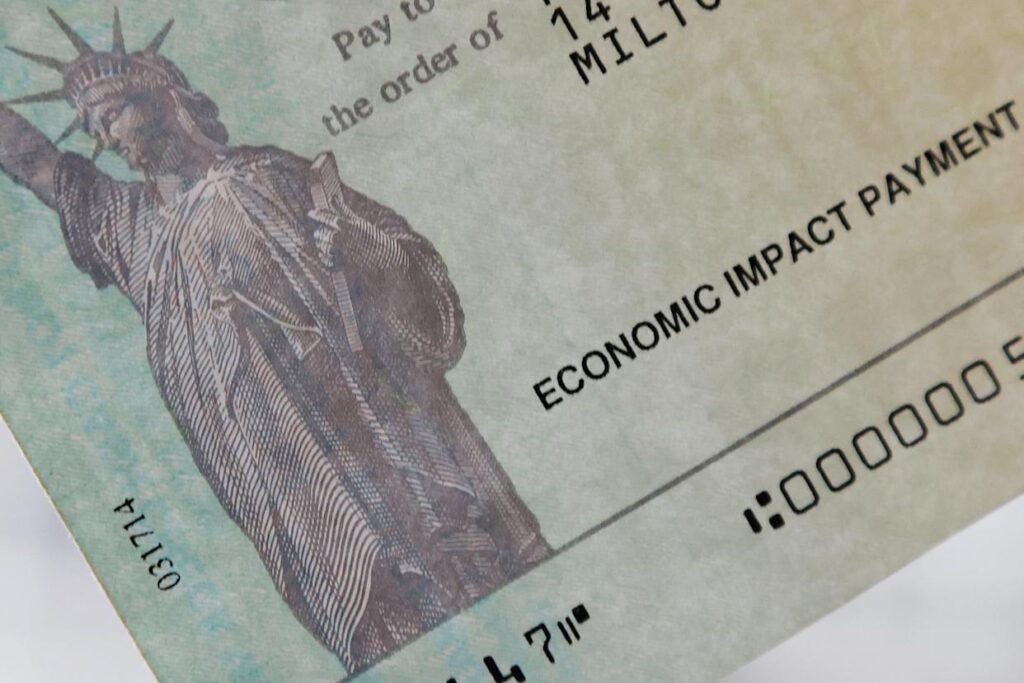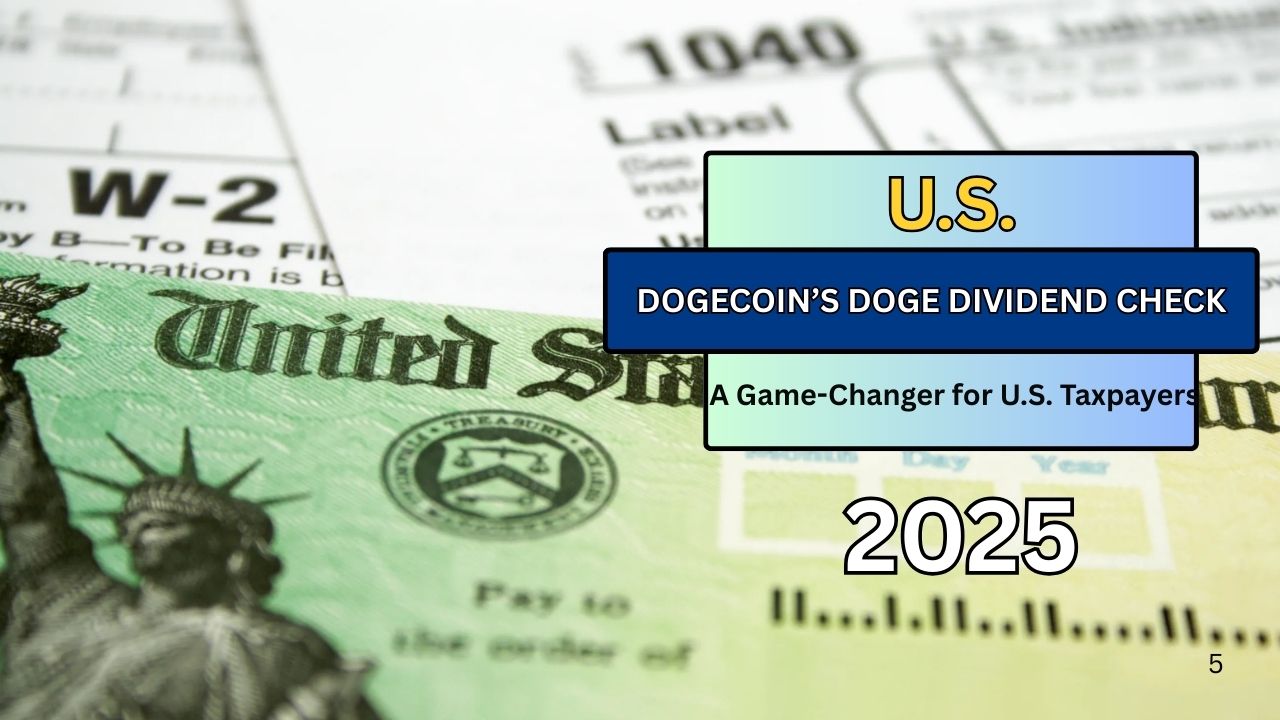The concept of a DOGE dividend check has emerged as a significant policy proposal in recent discussions about potential financial relief for U.S. taxpayers.
The idea stems from the government’s savings initiatives under the Department of Government Efficiency (DOGE), a program reportedly initiated by business magnate Elon Musk and supported by President Donald Trump.
As of 2025, the idea remains in the proposal stage and has not yet been enacted into law. However, its potential impact on taxpayers, government savings, and taxation policies could be profound.
What is the DOGE Dividend Check?
The DOGE dividend check is a proposed $5,000 payment to eligible U.S. taxpayers, stemming from savings identified by the DOGE initiative. According to reports, the DOGE program plans to redistribute 20% of its total savings to qualifying taxpayers, with the remaining 80% allocated to reducing the national debt.

This proposal has gained traction with high-profile endorsements from Elon Musk and President Trump, both of whom have suggested that the dividend could provide significant relief to middle-class households.
However, the proposal still needs approval from Congress, which has yet to finalize the details. The funds would likely be distributed via direct deposit or paper checks to eligible households. These payments would not be in the form of cryptocurrency, but rather, they would be issued in U.S. dollars.
Eligibility Criteria
To qualify for the DOGE dividend check, taxpayers must meet several conditions. The primary eligibility requirement is that recipients must be net federal income taxpayers, meaning they must pay more in taxes than they receive in refunds.
This exclusion is designed to ensure that those who do not contribute to the federal income tax pool—such as many low-income earners, retirees, and families benefiting from tax credits—do not receive the dividend.
The government has proposed income thresholds to ensure that lower-income individuals are excluded from receiving the payment.
According to the program’s draft, households with annual earnings below a certain threshold would not qualify, focusing the relief on middle-class taxpayers. While the specifics of this income threshold are still under discussion, the general aim is to prioritize taxpayers who contribute to the federal tax system.
For more information on eligibility criteria, visit the IRS website.
Payment Details
The DOGE dividend is expected to provide $5,000 per qualifying household. The payment would be issued in U.S. dollars, not in cryptocurrency. This is a critical distinction, as many taxpayers and financial advisors have raised concerns about the volatility of digital currencies.
The funds would come from savings identified by the DOGE initiative, which reportedly has earmarked up to $2 trillion in savings through various efficiency measures within federal programs.
A key point to note is that the proposed savings need to be verified and achieved, with the final numbers remaining uncertain at this stage.
Payments are expected to commence by mid-May 2025, with direct deposit payments arriving shortly thereafter. Paper checks could follow a few weeks later, depending on processing times.
Tax Implications
Like other stimulus payments, the DOGE dividend is considered miscellaneous income by the IRS. As such, recipients will need to report the payment on their federal tax returns.
The IRS will issue a 1099-MISC form to recipients, detailing the amount received. This form must be included when filing taxes for the year in which the dividend was received.
State tax implications will vary. While 41 states will treat the DOGE dividend as regular income, the remaining 9 states, including Florida, Texas, Tennessee, and Washington, will not tax the payment due to the absence of a state income tax. Taxpayers residing in states with personal income taxes will need to account for this dividend as part of their annual state tax filings.
For more information on federal taxes and miscellaneous income, refer to the official IRS guidelines.
Current Status and Legislative Roadblocks
As it stands, the DOGE dividend check remains just a proposal and is not yet law. To become reality, it needs approval from Congress, which has not yet made a decision on the matter.
While the proposal has gathered momentum among some policymakers, many others are skeptical about the feasibility of the initiative, particularly given the large savings target set by the DOGE program.
Some critics argue that the projected savings from the DOGE initiative may be overly optimistic and difficult to achieve.

Moreover, the political landscape surrounding the proposal has been divided, with some fearing that the implementation of such a large-scale dividend program could contribute to further inflation or add to the national debt.
For updates on this initiative, consider following reputable sources such as AP News and Business Insider.
Conclusion
The DOGE dividend check represents an intriguing proposal that could provide substantial financial relief to eligible U.S. taxpayers. However, its success hinges on the achievement of significant government savings and approval by Congress.
If enacted, the payments could provide a much-needed financial cushion for middle-class households, but the road ahead remains uncertain. Taxpayers should stay informed about eligibility requirements and potential tax implications, as the proposal progresses through legislative channels.
This article has been carefully fact-checked by our editorial team to ensure accuracy and eliminate any misleading information. We are committed to maintaining the highest standards of integrity in our content.

Deepak Grover is a dedicated content writer at OTE News, specializing in government affairs, public policy, and current events. With a keen eye for detail and a passion for factual reporting, he ensures readers receive accurate and insightful news. Deepak holds a degree in Political Science and has experience in research-driven journalism.
When not writing, he enjoys reading historical books, exploring hiking trails, and staying updated with global political trends. His commitment to ethical journalism makes him a trusted voice at OTE News.




